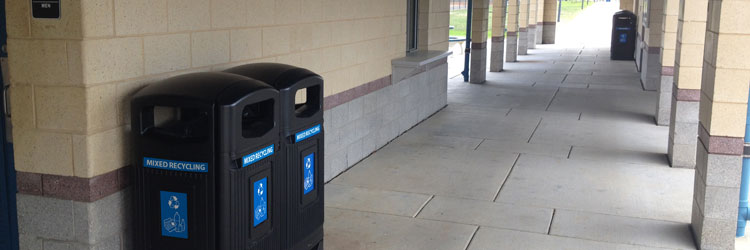It’s no secret that the recycling industry provides great environmental benefits, but how can it benefit the economy? The Pennsylvania Markets Center conducted an in-depth analysis into the effects of the recycling industry on the state’s economy and the results may surprise you!

The Pennsylvania Recycling Marketplace
The direct, indirect and induced economic impacts of Pennsylvania’s recycling industry can be attributed to the ‘Pennsylvania Recycling Marketplace’. This consists of three distinct recycling industry sectors. The core recycling sector is made up of private and public haulers, material recovery facilities, scrap yards, recycled material wholesalers and compost and mulch operations.
The other two contributing categories are the downstream manufacturing sectors, which includes all stages of processing and converting materials for use, and the re-use and remanufacturing sectors, where goods are repurposed and refurbished. Producing new plastic from recycled material uses at least one-third less energy than if it was manufactured from raw materials!
Recyclable Materials
The report focused on the following recycling streams: paper, plastics, glass, metals, scrap electronics, organics, textiles and tires. From here, there were able to gain a comprehensive insight into the effects of recycling on the economy.
The national recycling rate for aluminium cans is about 67%. Yet despite this figure, it is still estimated that nearly $1 billion worth of aluminium cans are sent to landfill every year. This shows that there’s still some work to be done. We offer a variety of recycling containers for aluminium cans to help improve the ease of recycling and in turn, help to keep this recycling rate high!
Employment Benefits
Almost 6,400 companies exist within the Pennsylvania Recycling Marketplace, which have provided over 66,000 direct jobs in 2015. But the employment benefits of the recycling industry don’t stop there! The recycling industry has also stimulated an additional 110,000 indirect and induced jobs.
For every job connected to the core recycling sector, a further 4.4 jobs are supported in Pennsylvania. This figure alone gives us an insight into just how valuable the recycling industry can be for the economy.
The Economic Value of Recycling
Gross State Product is arguably the most important economic statistic of all and in 2015 Pennsylvania’s recycling industry contributed $22.6 billion in value to the state’s gross product. For every dollar of direct activity produced by the recycling industry, another dollar was contributed by the combined value of the indirect and induced activity.
So how valuable were each of the three major categories in the Pennsylvania Recycling Marketplace? The core recycling sector led to $3.8 billion of value added contribution to GSP, whilst downstream manufacturing contributed $17.3 billion and the re-use and remanufacturing sectors added $1.5 billion to the GSP.
Recycling and Government Revenues
It is estimated that the recycling industry generated $1.7 billion in state taxes and an extra $2.7 billion in federal taxes in 2015.
The monetary contribution of the downstream manufacturing sector made up approximately three-quarters of the state and federal tax categories, or $1.3 billion in state taxes and $2.0 billion in federal taxes. The substantial benefits of each sector within the recycling industry demonstrates how instrumental every stage of the recycling process is for our economy.
Recycling for the Environment and Economy
We are all aware of the environmental benefits of recycling. The positive environmental impact of recycling in endless. From the benefits of fresher air and reduced landfill waste to its contribution to preserving natural resources, there’s no denying that recycling is positive for our environment.
But the economic benefits aren’t always as obvious. The findings from the Pennsylvania Markets Center report indicates that the recycling industry can be a strong positive force when you look at the environmental, social and economic impact.




